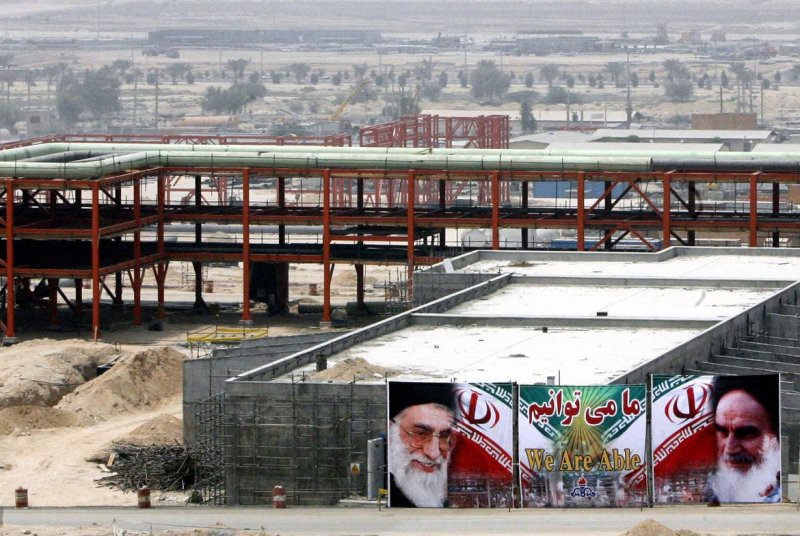Iranian oil production levels are static, showing U.S. sanctions pressures have yet to materialize. File Photo by Maryam Rahmanian/UPI |
License Photo
June 8 (UPI) -- With sanctions pressures looming over Tehran, production from OPEC's third-largest producer, Iran, hasn't yet been impacted, a Platts survey found.
Commodity pricing group S&P Global Platts said total production from members of the Organization of Petroleum Exporting Countries in May was 31.9 million barrels per day, a 13-month low. Pipeline issues in Nigeria and chronic shortages from Venezuela contributed to the drop in output, its survey indicated.
OPEC is in its second year of an effort to drain the surplus from the oil held by the world's most advanced economies through coordinated production cuts. Compliance with the agreement so far is well over 100 percent and, according to Platts, much of that is attributed to "crushing debt, hyperinflation, labor troubles and crumbling oil infrastructure" in Venezuela.
Crude oil prices have been supported in recent days by concerns about the export potential for Venezuela, one of the largest suppliers to the U.S. market, and potential outages from Iran.
In May, U.S. President Donald Trump backed out of the Joint Comprehensive Plan of Action, a multilateral agreement that gave Iran relief from sanctions in exchange for peaceful nuclear commitments. The decision set a 180-day clock ticking for Iranian oil customers to find other alternatives or face U.S. sanctions pressures.
The Platts survey found Iranian oil production was steady at 3.83 million bpd, making it the third-largest OPEC producer behind Saudi Arabia, the top supplier, and Iraq.
"The United States in May withdrew from the Iranian nuclear deal, which relaxed sanctions on Iranian crude exports, though analysts are divided on how much oil might be shut in when the sanctions go back into effect in November," the report read.
Paul Sheldon, an associate director at Platts Analytics, said in May that enforcing compliance with Trump's unilateral sanctions move is much more difficult than previous multilateral sanctions.
"This could test the Trump administration's appetite for sanctioning foreign companies and the term 'significant' in the sanctions legislation potentially leaves some wiggle room, which could be used to avoid a trade dispute," he said.
The International Energy Agency estimates the potential fading of Iran from the oil market could have drastic implications on market balance. The IEA "stands ready to act" to ensure market supplies are adequate. That action, ironically, could include a call on the United States to release oil from its strategic reserves, as it did in response to civil conflict in Libya in 2011.
European leaders voiced their opposition to Trump's decision, enacting legislation that could block any U.S. sanctions that would hit European energy companies working with Iran.















